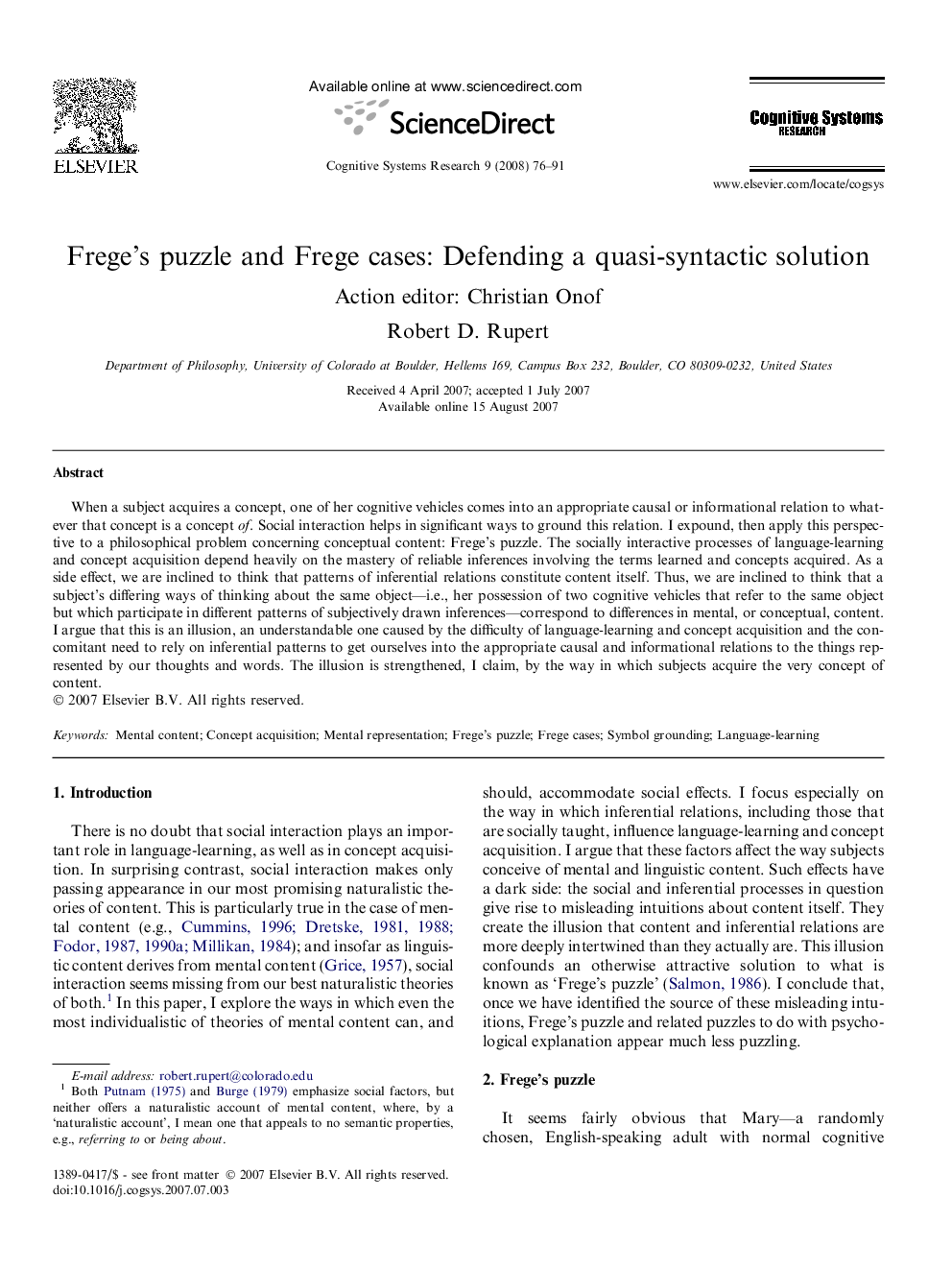| کد مقاله | کد نشریه | سال انتشار | مقاله انگلیسی | نسخه تمام متن |
|---|---|---|---|---|
| 378644 | 659176 | 2008 | 16 صفحه PDF | دانلود رایگان |

When a subject acquires a concept, one of her cognitive vehicles comes into an appropriate causal or informational relation to whatever that concept is a concept of. Social interaction helps in significant ways to ground this relation. I expound, then apply this perspective to a philosophical problem concerning conceptual content: Frege’s puzzle. The socially interactive processes of language-learning and concept acquisition depend heavily on the mastery of reliable inferences involving the terms learned and concepts acquired. As a side effect, we are inclined to think that patterns of inferential relations constitute content itself. Thus, we are inclined to think that a subject’s differing ways of thinking about the same object—i.e., her possession of two cognitive vehicles that refer to the same object but which participate in different patterns of subjectively drawn inferences—correspond to differences in mental, or conceptual, content. I argue that this is an illusion, an understandable one caused by the difficulty of language-learning and concept acquisition and the concomitant need to rely on inferential patterns to get ourselves into the appropriate causal and informational relations to the things represented by our thoughts and words. The illusion is strengthened, I claim, by the way in which subjects acquire the very concept of content.
Journal: Cognitive Systems Research - Volume 9, Issues 1–2, March 2008, Pages 76–91